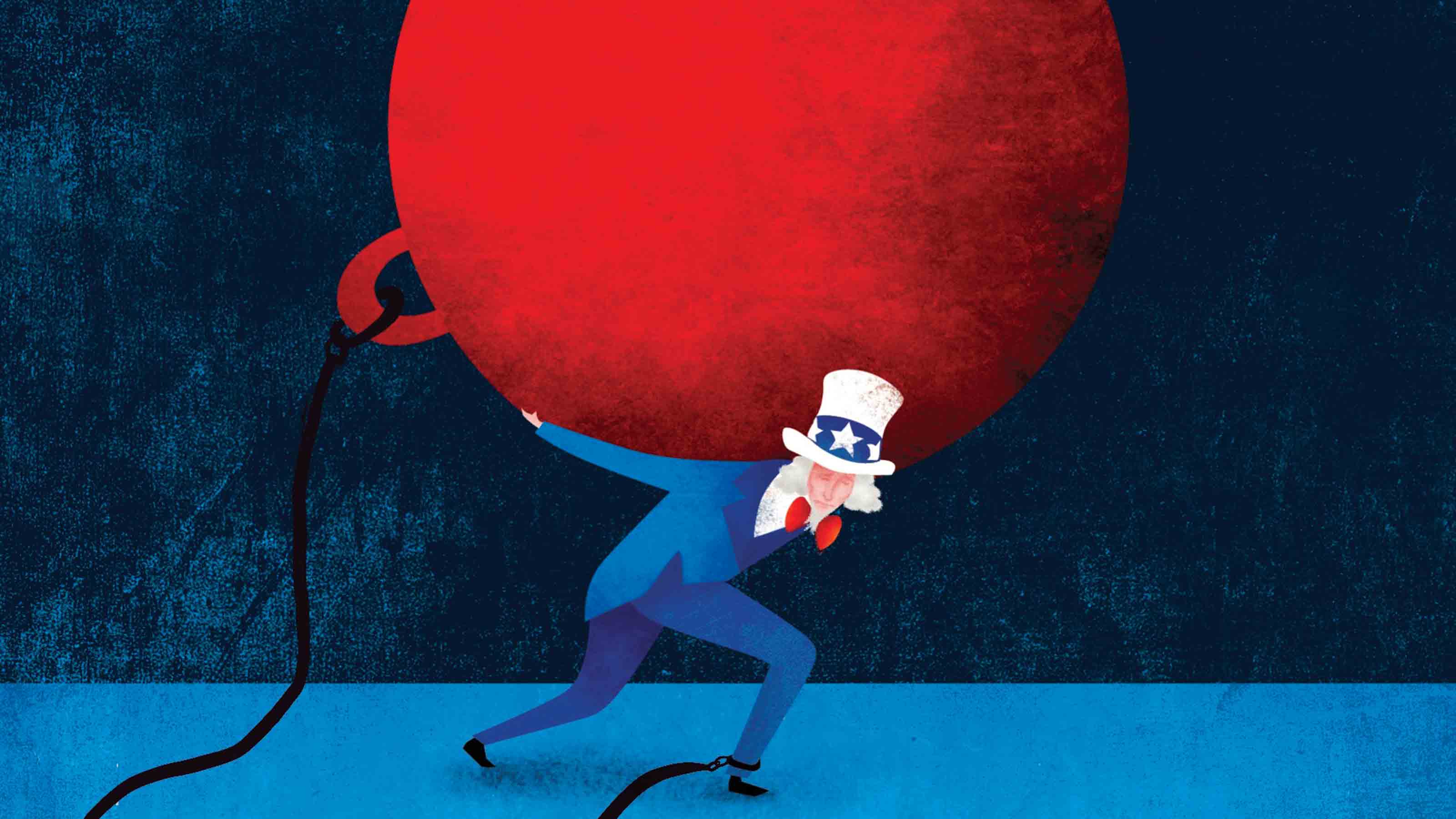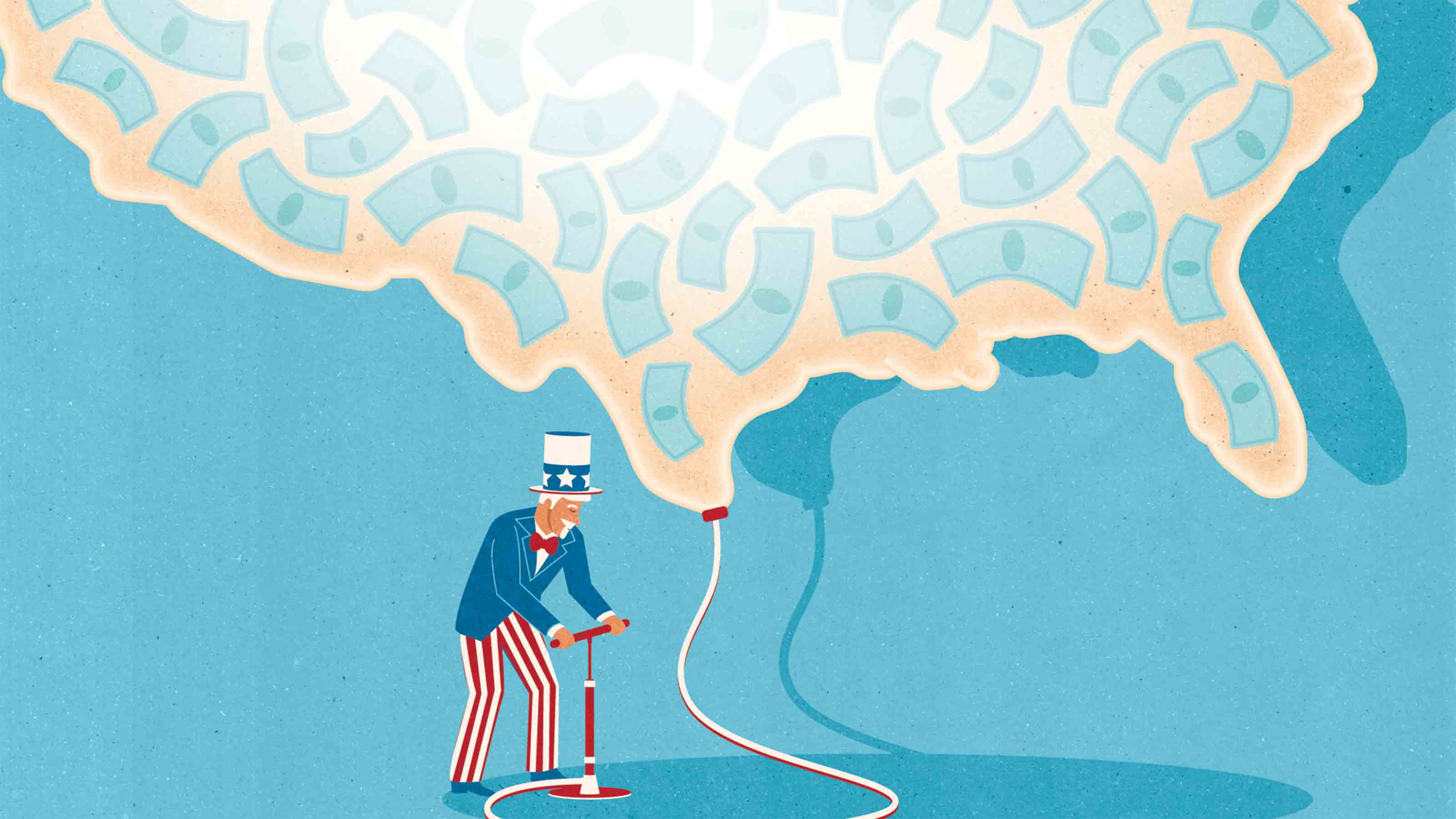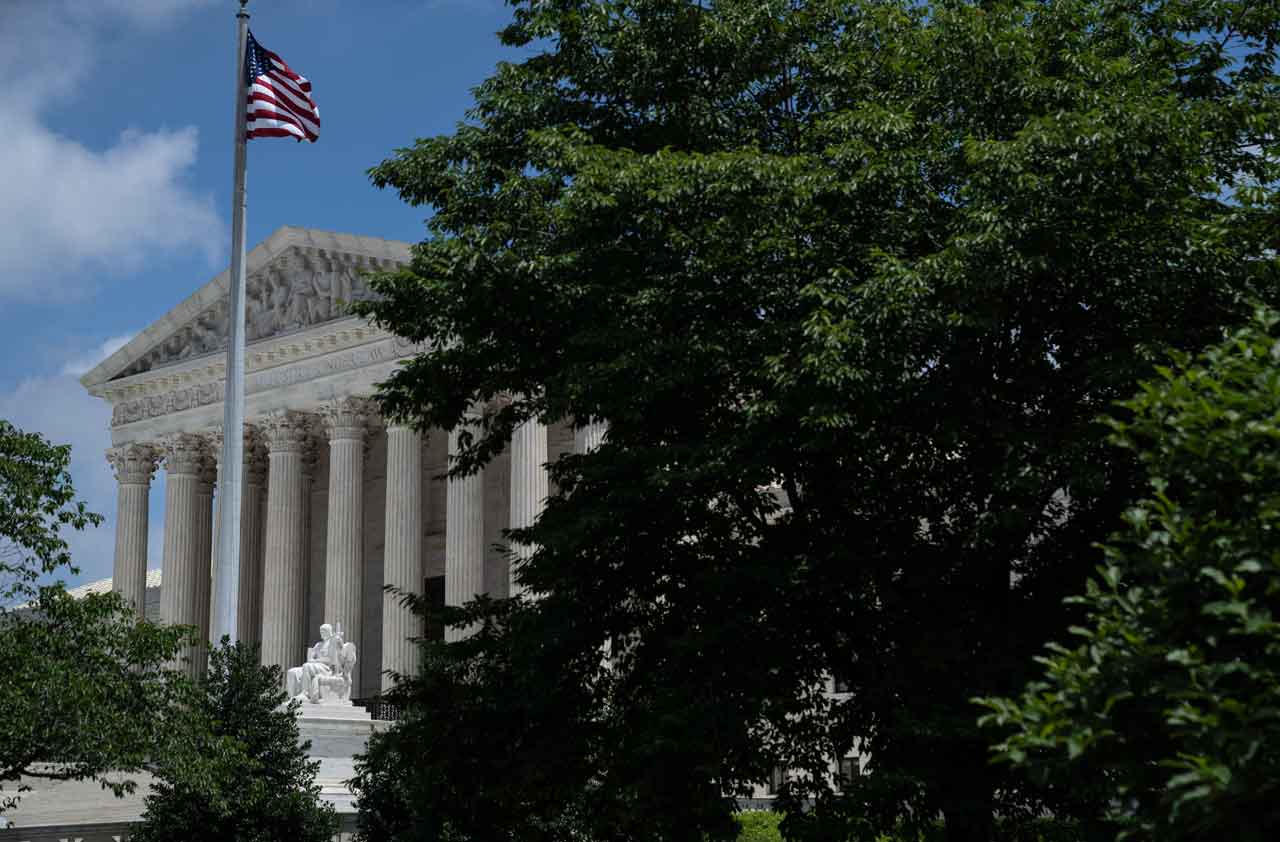The Fatal Flaw of Obama's Mortgage Plan
Until Americans see owning a home as a good investment again, housing will continue to be a drag on the economy.

Profit and prosper with the best of Kiplinger's advice on investing, taxes, retirement, personal finance and much more. Delivered daily. Enter your email in the box and click Sign Me Up.
You are now subscribed
Your newsletter sign-up was successful
Want to add more newsletters?

Delivered daily
Kiplinger Today
Profit and prosper with the best of Kiplinger's advice on investing, taxes, retirement, personal finance and much more delivered daily. Smart money moves start here.

Sent five days a week
Kiplinger A Step Ahead
Get practical help to make better financial decisions in your everyday life, from spending to savings on top deals.

Delivered daily
Kiplinger Closing Bell
Get today's biggest financial and investing headlines delivered to your inbox every day the U.S. stock market is open.

Sent twice a week
Kiplinger Adviser Intel
Financial pros across the country share best practices and fresh tactics to preserve and grow your wealth.

Delivered weekly
Kiplinger Tax Tips
Trim your federal and state tax bills with practical tax-planning and tax-cutting strategies.

Sent twice a week
Kiplinger Retirement Tips
Your twice-a-week guide to planning and enjoying a financially secure and richly rewarding retirement

Sent bimonthly.
Kiplinger Adviser Angle
Insights for advisers, wealth managers and other financial professionals.

Sent twice a week
Kiplinger Investing Weekly
Your twice-a-week roundup of promising stocks, funds, companies and industries you should consider, ones you should avoid, and why.

Sent weekly for six weeks
Kiplinger Invest for Retirement
Your step-by-step six-part series on how to invest for retirement, from devising a successful strategy to exactly which investments to choose.
Even if it works as promised, President Obama’s latest effort to aid the housing market won’t get at the root of the problem that housing poses for the economy.
As before, the president is trying to spur refinancing to lower monthly payments -- in this case, targeting “underwater” borrowers who owe more than their homes are worth.
If the plan works, it would make life easier for some families, but it won’t address how the crash in home prices continues to hinder economic growth. That’s because high monthly payments aren’t the problem -- excessive debt is.
From just $107.88 $24.99 for Kiplinger Personal Finance
Become a smarter, better informed investor. Subscribe from just $107.88 $24.99, plus get up to 4 Special Issues

Sign up for Kiplinger’s Free Newsletters
Profit and prosper with the best of expert advice on investing, taxes, retirement, personal finance and more - straight to your e-mail.
Profit and prosper with the best of expert advice - straight to your e-mail.
Foreclosures are the most obvious effect of the housing crisis, but the broader damage comes from the way that sinking prices have wiped out home equity, down by $7 trillion, or more than 50%. For the first time, roughly half of homeowners owe 80% or more of the value of their homes. This crushing debt has unbalanced the balance sheets and financial plans of most middle-class families, leading them to pull back on consumer spending, which accounts for 70% of economic activity.
Even if home prices start rising again, homeowners understand that it will take years, and perhaps decades, to make a dent in this enormous debt. Until the debt burden of mortgage holders is reduced, housing will continue to depress confidence and consumer spending, as it has in Japan for 15 years.
At least three prior attempts since 2008 to assist the housing market have failed. The Obama administration said these earlier efforts would result in refinancing and lower monthly payments for 3 million to 4 million homeowners, but the total so far is only 900,000. Meanwhile, 11 million families -- nearly one in four home mortgage borrowers -- owe more than their homes are worth.
With his new proposal, the president has lowered his sights: He says he hopes to help one-tenth of the 11 million homeowners whose mortgages are underwater. It’s a new goal, but the approach is the same: waiving rules to encourage banks to refinance government-backed mortgages. Banks that agree to refinance underwater mortgages are freed from the threat that the government might later accuse them of making a loan that was too risky.
Unfortunately, the new plan shares a fatal flaw with the prior ones. It won’t work unless homes promptly start rising in value, which isn’t in the cards. By some measures, home prices would still have to fall 10% to revert to the long-term price trend before the bubble. And after falling a bit, the number of homes headed for foreclosure is increasing again. The economy isn’t adding jobs, incomes are falling, and most forecasts are for another year of very slow growth.
Many borrowers with underwater mortgages are defaulting in part because they see no prospect of a return on further investment. Until these borrowers and others are convinced that homes are a good investment, no government program will be able to boost the housing market.
The only effective solution to the problem is an unlikely one: an expensive, government-led plan to write off the debts of those with no equity. It would be unpopular because it would rescue many borrowers who took on homes they couldn’t afford, even if the effects promise to raise everyone’s home values. Government would share the cost with banks, which would have to be persuaded or forced to write off debt. A plan advocated by Harvard economist Martin Feldstein would lower the debts of underwater homeowners to no more than 110% of the home’s value -- within hailing distance of positive equity. The out-of-pocket expense for the government would be $350 billion, but a good chunk of that is already committed because millions of these loans are insured by government-owned Fannie Mae and Freddie Mac, and thus Uncle Sam is on the hook.
It’s hard to imagine Republicans and Democrats joining together for something like this. But absent such radical action, housing will hobble the economy for years to come.
Profit and prosper with the best of Kiplinger's advice on investing, taxes, retirement, personal finance and much more. Delivered daily. Enter your email in the box and click Sign Me Up.

-
 Dow Adds 1,206 Points to Top 50,000: Stock Market Today
Dow Adds 1,206 Points to Top 50,000: Stock Market TodayThe S&P 500 and Nasdaq also had strong finishes to a volatile week, with beaten-down tech stocks outperforming.
-
 Ask the Tax Editor: Federal Income Tax Deductions
Ask the Tax Editor: Federal Income Tax DeductionsAsk the Editor In this week's Ask the Editor Q&A, Joy Taylor answers questions on federal income tax deductions
-
 States With No-Fault Car Insurance Laws (and How No-Fault Car Insurance Works)
States With No-Fault Car Insurance Laws (and How No-Fault Car Insurance Works)A breakdown of the confusing rules around no-fault car insurance in every state where it exists.
-
 Federal Debt: A Heavy Load
Federal Debt: A Heavy LoadEconomic Forecasts The debt continues to grow, but record-low interest rates could ease the long-term damage.
-
 How the Fed's Moves Affect You
How the Fed's Moves Affect YouEconomic Forecasts It’s pumping trillions of dollars into the economy and keeping rates near zero. Savers are sunk, but borrowers get a boost.
-
 Consumers Will Feel Impact of Rapidly Falling Interest Rates
Consumers Will Feel Impact of Rapidly Falling Interest RatesEconomic Forecasts Mortgage and car loans will experience the most significant dips, while some holders of Treasuries may get a slight boost.
-
 Will You Have to Pay More Sales Taxes on Your Online Purchases?
Will You Have to Pay More Sales Taxes on Your Online Purchases?business One thing’s for sure: Consumers who live in one of the five states without a sales tax won’t be affected by the Supreme Court’s ruling.
-
 A Housing Shortage Looms: Builders Can’t Keep Up
A Housing Shortage Looms: Builders Can’t Keep Upbusiness Starter homes especially are becoming scarce.
-
 Is Credit-Card Debt Out of Control?
Is Credit-Card Debt Out of Control?credit & debt Balances are on the rise, but defaults are still low.
-
 Help Wanted in America: Skilled Workers
Help Wanted in America: Skilled WorkersTechnology In an ever-more-competitive job market, technology increases the need for skilled workers.
-
 The Unintended Consequences of a Boost in Overtime Pay
The Unintended Consequences of a Boost in Overtime PayBusiness Costs & Regulation New rules mean millions more employees will be overtime-eligible. But will employers find workarounds?